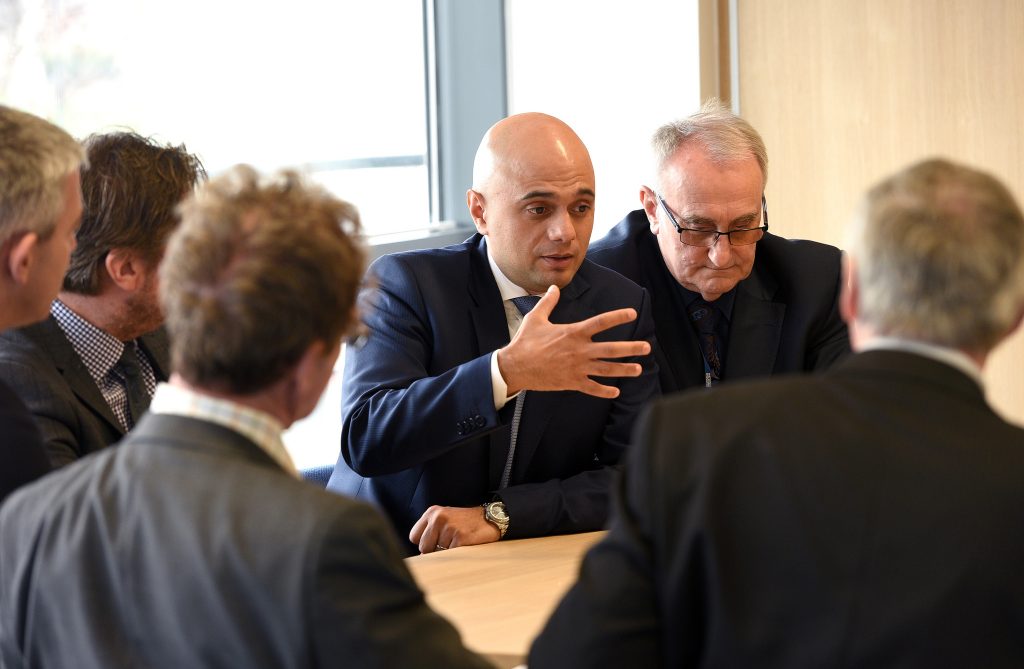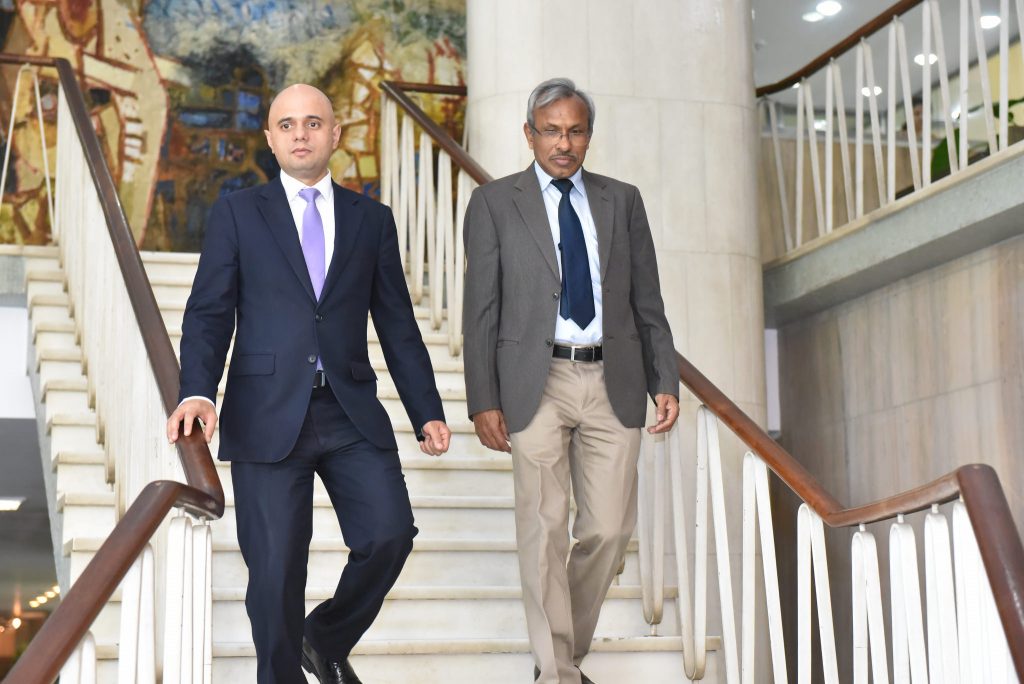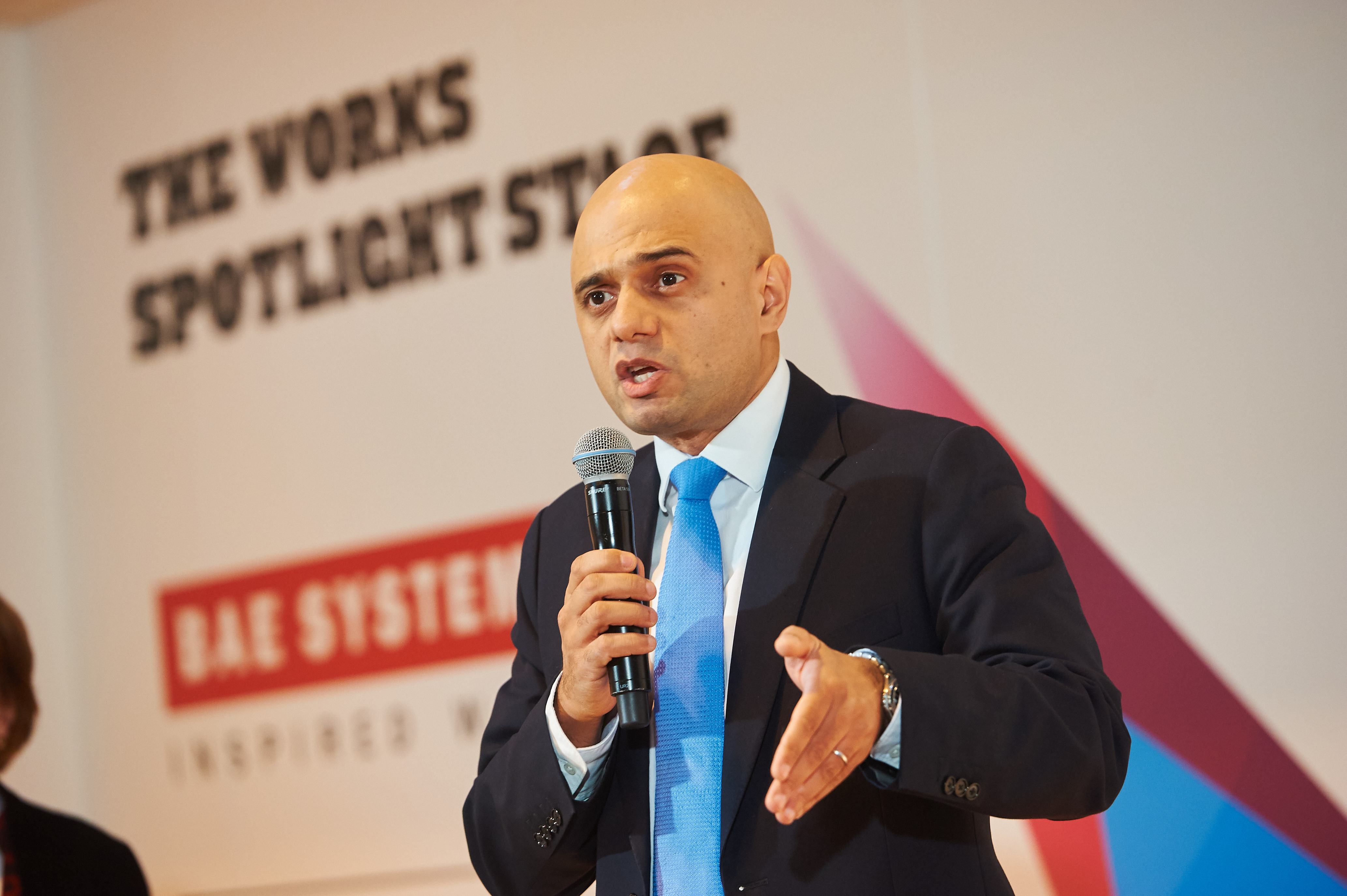Another month, another change in Theresa May’s top team. This time it’s the Home Secretary gig which has changed hands, with former Communities Secretary Sajid Javid taking up the mantle.
The Conservative MP for Bromsgrove was promoted to one of the top gigs in Government after his predecessor, Amber Rudd, was forced to resign due to the ongoing fallout from the Windrush Scandal, where thousands of people who arrived in the UK legally were threatened with deportation.
As Home Secretary, Javid will be tasked with looking after immigration, citizenship, policing, national security and the security service. So, let’s take an in-depth look at his views on human rights.
The Human Rights Act

Image Credit: Ministry of Housing / Flickr
The Human Rights Act is the piece of law that makes the Human Rights Convention enforceable in the UK. It protects all kinds of things like our right to not be discriminated against, the rights to liberty and freedom of speech, and to the peaceful enjoyment of property.
However, there have been some calls to scrap the Act, and it was previously part of the Conservative Party manifesto, though this has now been put on hold until after Brexit.
Sadly, it looks as if Sajid Javid isn’t a fan of the Human Rights Act, as he voted to scrap it in 2016.
Freedom of the Press
 Image Credit: Elijan O’Donnell / Unsplash
Image Credit: Elijan O’Donnell / Unsplash
One of the reasons Javid gives for not supporting the Human Rights Convention is that he doesn’t think it goes far enough in protecting journalists.
Speaking in 2014 he said that the current rules “have not done enough to protect journalists who play such a unique role in our society”.
He says he wants to reform rules to “protect responsible journalism”. However, some rights groups argue that this is the whole point of the Human Rights Convention, and that the courts have demonstrably backed journalists in the past.
[The rules] have not done enough to protect journalists who play such a unique role in our society.
Sajid Javid MP
For example, in the case of freelance journalist Bill Goodwin, the courts stressed how vital it was for journalists to be able to protect their sources.
Freedom of expression is one of our most fundamental human rights – and this especially applies to the press who hold the Government and other officials to account.
Equal Marriage For All

Image Credit: Allef Vinicius / Unsplash
Equal marriage finally became law in England and Wales in 2013, with Scotland swiftly following suit in 2014. Northern Ireland remains the only part of the UK not to allow the ceremonies.
While not specifically listed as part of the Human Rights Convention, equal marriage is all about fundamental human rights values of equality, dignity and non-discrimination, as well as the right to be able to enjoy a private and family life.
The good news is Sajid Javid is seemingly very on board, consistently voting to extend rights to same-sex couples.
An Extensive Voting Record

Image Credit: British High Commission in New Dehli / Flickr
As a Member of Parliament since 2010, Sajid Javid has taken part in hundreds of other votes which touch on our human rights – far too many to list on one page.
He’s consistently voted against raising welfare benefits, including the controversial bedroom tax policy which was taken all the way to the Supreme Court over fears it was breaching the human rights of disabled people.
Javid has also regularly voted for mass surveillance of people’s communications and activities, something which can affect our lives and rights in all kinds of ways. Similarly, he’s voted for stricter regulation of trade unions, again something which is protected as part of our human rights. He’s also voted for a stricter asylum system.
As he settles into his new role as at the Home Office, we’ll have to wait and see how these views feed into any new policies or direction.
Featured Image Credit: Find a Future / Flickr







